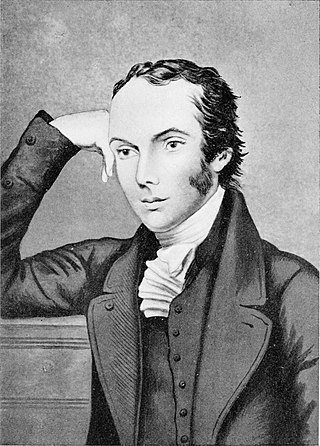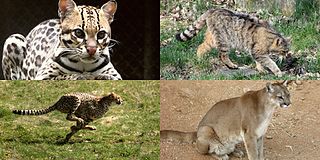
Marie-Antoine Carême, known as Antonin Carême, was a leading French chef of the early 19th century.

Karl Georg Büchner was a German dramatist and writer of poetry and prose, considered part of the Young Germany movement. He was also a revolutionary and the brother of physician and philosopher Ludwig Büchner. His literary achievements, though few in number, are generally held in great esteem in Germany and it is widely believed that, had it not been for his early death, he might have joined such central German literary figures as Johann Wolfgang von Goethe and Friedrich Schiller at the summit of their profession.

Félix Édouard Guérin-Méneville, also known as F. E. Guerin, was a French entomologist.

Jean Ignace Isidore Gérard was a prolific French illustrator and caricaturist who published under the pseudonym of Jean-Jacques Grandville or J. J. Grandville. He has been described by author Cynthia Rose, writing in The Comics Journal, as "the first star of French caricature's great age". The anthropomorphic vegetables and zoomorphic figures that populated his cartoons anticipated and influenced the work of generations of cartoonists and illustrators from John Tenniel, to Gustave Doré, to Félicien Rops, and Walt Disney. He was greatly admired by André Breton and others in the surrealist movement.

Thomas Pringle was a Scottish writer, poet and abolitionist. Known as the father of South African poetry, he was the first successful English language poet and author to describe South Africa's scenery, native peoples, and living conditions.

François Désiré Roulin was a French naturalist, physician and illustrator born in Rennes.

Felinae is a subfamily of the Felidae and comprises the small cats having a bony hyoid, because of which they are able to purr but not roar. Other authors have proposed an alternative definition for this subfamily, as comprising only the living conical-toothed cat genera with two tribes, the Felini and Pantherini, and excluding the extinct sabre-toothed Machairodontinae.

Édouard Charton was a French literary figure who founded the magazine Le Magasin pittoresque, and served as its editor-in-chief for fifty-five years (1833–88). He also served as director of publication of the French publisher Hachette for thirty years (1860–90).

Jean Baffier, was a French sculptor.
Jean Le Fustec was a Breton bard, and the first Archdruid of the Goursez Vreizh. He is also known by his Breton language name Yann ab Gwilherm and his Druidic name Lemenik.

The Revue musicale was a weekly musical review founded in 1827 by the Belgian musicologist, teacher and composer François-Joseph Fétis, then working as professor of counterpoint and fugue at the Conservatoire de Paris. It was the first French-language journal dedicated entirely to classical music. In November 1835 it merged with Maurice Schlesinger's Gazette musicale de Paris to form Revue et gazette musicale de Paris, first published on 1 November 1835. It ceased publication in 1880.
Louise Marguerite Espérance Langlois was a French painter and printmaker. From her marriage to the lawyer and businessman Jean-Adrien Bourlet de la Vallée she was also known as Espérance Bourlet de la Vallée.

Frédérique Vallet-Bisson was a French painter and pastellist.

Samuel-Henri Berthoud was a 19th-century French writer, journalist, and popular science writer for youth.
Alexandre Lachevardière was a French bookseller and printer-publisher of the 19th century.
Philadelphe-Maurice Alhoy was a 19th-century French journalist, writer and playwright, born and died in Paris.

Sander Rang or Paul Charles Leonard Alexander Rang was a French conchologist and interpreter of Arabic texts. He was, in 1816, one of the survivors of the sinking of the frigate Medusa, on which he was an ensign. He spent a good part of his life in La Rochelle, where he published his early zoological observations, in particular in the bulletins of the Society of Natural Sciences of Charente-Maritimes.In 1841 Rang was one of the founding members of the Société des Amis des Arts now the Musée des Beaux-Arts de La Rochelle.He specialised in marine fauna notably in sea hares, cephalopods and other molluscs and on the heterogenous group known as zoophytes. Sander Rang described many new mollusc species including the sea hares Aplysia dactylomela, Dolabrifera dolabrifera, the cuttlefish Sepia hierredda and the land snails Striosubulina striatella, Pleurodonte desidens and Opeas hannense.

The Beylik of Titteri,, was one of the three permanent Beyliks of the Regency of Algiers, the other two being the Western Beylik, and the Beylik of Constantine. It was established in 1546 and was ended during the French conquest of Algeria.

The Tombeau de Merlin is a megalithic monument dating from the Neolithic period located in the Forest of Paimpont, at a place called La Marette near the hamlet of Landelles in Paimpont.















